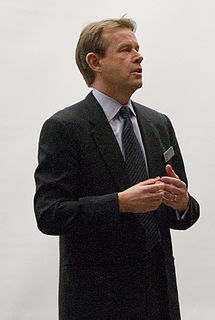A Quote by Phil Schiller
From the beginning, the Mac has been about Apple taking responsibility for the whole thing: hardware, software, how applications can work, and, increasingly, Internet services.
Related Quotes
By 1988, I'm seeing this commercial phenomenon beginning to show up. Hardware makers are selling routers to universities so they can build up their campus networks. So I remember thinking, 'Well, how are we going to get this in the hands of the general public?' There were no public Internet services at that point.
































